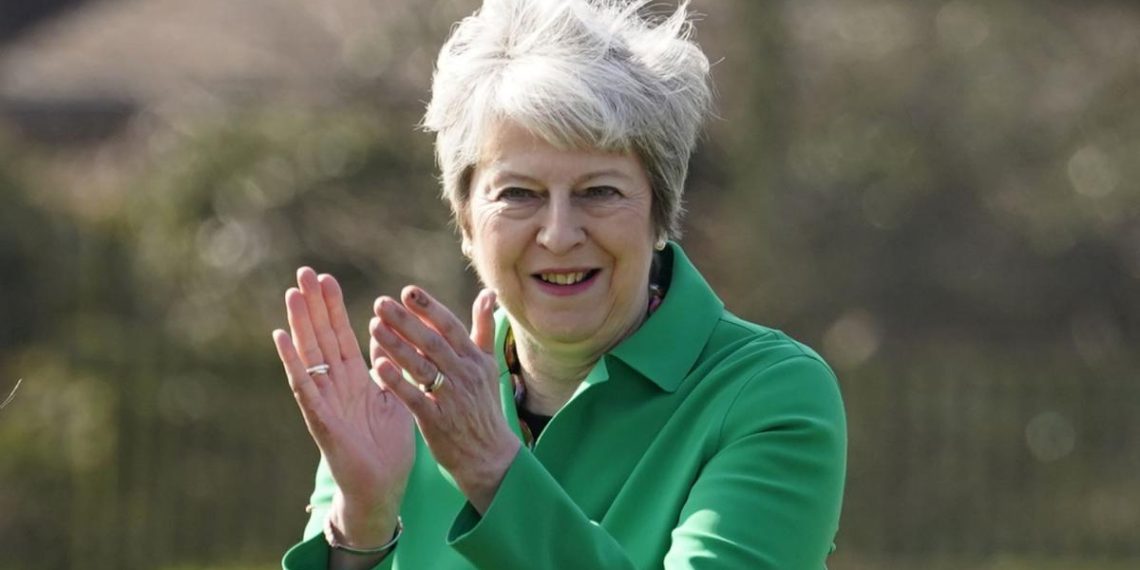Former British Prime Minister Theresa May announced her decision not to seek re-election, ending her 27-year-long parliamentary career. Her tenure, marked by the Brexit turmoil, saw her navigating the complexities of leading a deeply divided nation through one of its most turbulent periods.
May assumed office in 2016 after David Cameron’s resignation following the Brexit referendum. Tasked with executing Brexit, she grappled with a lack of consensus and faced challenges in securing parliamentary approval for her exit plan. Despite her efforts, she stepped down in 2019, passing the baton to Boris Johnson.

In her announcement, May cited her growing commitment to combating modern slavery and human trafficking as a reason for her departure. She expressed concern that her evolving priorities might hinder her ability to serve her constituents effectively.
Current Prime Minister Rishi Sunak praised May for her dedication and resilience, acknowledging her contributions as a public servant. May’s leadership was defined by her unwavering commitment and relentless pursuit of her vision for the country.
Throughout her tenure, Brexit remained the focal point, exposing deep-seated divisions within her party and the nation. Despite initially seeking a stronger mandate through a snap election in 2017, May’s gamble backfired, resulting in a hung parliament and further complicating Brexit negotiations.

May’s resignation in 2019 marked the end of a tumultuous era in British politics. Despite her challenges, she reflected on her time in office as an honor and expressed gratitude for the opportunity to serve her country.
As May bows out of politics, her legacy will be remembered amidst the ongoing Brexit fallout, highlighting the complexities and uncertainties that defined her tenure as Prime Minister.





